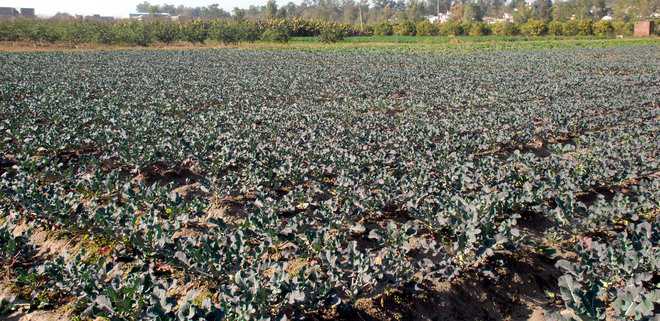Experts recommend recycling of agricultural waste to make biofuel
Neha Walia
Tribune News Service
Amritsar, April 25
After the state government’s ambitious project on reuse of paddy straw as a fuel in brick kiln industry got approval from the Union Ministry, the concept of using agricultural waste as fuel has once again come to the fore. With emphasis on eco-friendly disposal of agricultural waste which is otherwise burnt and is one of the biggest causes of air pollution in the state, several agriculturists and environmentalists are already doing their bit to reuse and recycle.
An expert in natural farming techniques, Rajbir Singh, who has been in charge of cultivating Khalsa College’s organic farms, says agricultural waste processed for fuel could bring 150 per cent profit to the agriculture industry. “Agri-waste from maize or any other fruit crop could be used to process oil and bio-fuel. All we need is a bug storage unit and processing unit. This is only possible on big farming enterprises in areas like Sangrur, where a large number of crops are cultivated. Also, simple procedures like mulching of paddy and agriculture waste, could produce highly potent manure that could replace the chemical pesticides and fertilizers being currently used by farmers. All one needs is a six or seven layered compost pit with one foot thick alternate layers of farm waste, soil and water,” he informs.
Rajbir has been implementing mulching concept into turning the waste decomposable ‘patals’ being used at langars for eating. “These patals are made of dry leaves and they are disposed of openly after the langar gets over. So, we collect them and use them as manure after mulching process.”
Another concept of producing biofuel from agricultural waste was implemented by a government school teacher from Jabowal, Sanjeev Sayal. He designed a charring drum with a chimney and vent that is to burn paddy and make biofuel. “Paddy burning is an important issue in Punjab as it’s a threat to the environment as well as the fertility of the soil. The authorities have failed to curb this menace and there is no awareness among farmers about any alternatives. Through this procedure, we could turn the paddy into biofuel with a procedure called pyrolysis,” he said.
Converting dry leaves, agricultural waste, paddy into bricklets, the process involves compact burning of waste in the absence of oxygen, retrieving the char, which is then crushed and mixed with binders of the required amount and moulded into bricklets. The bricklets, when sun dried, could be used as fuel at home or industrial use.
Both believe that awareness about such processing among the farmers can change their fortunes as well as serve as alternate energy reserves. “Farmers could sell-off the paddy for a handsome price for biofuel production or use it as an energy resource. Awareness and education are the key here,” says Rajbir.










